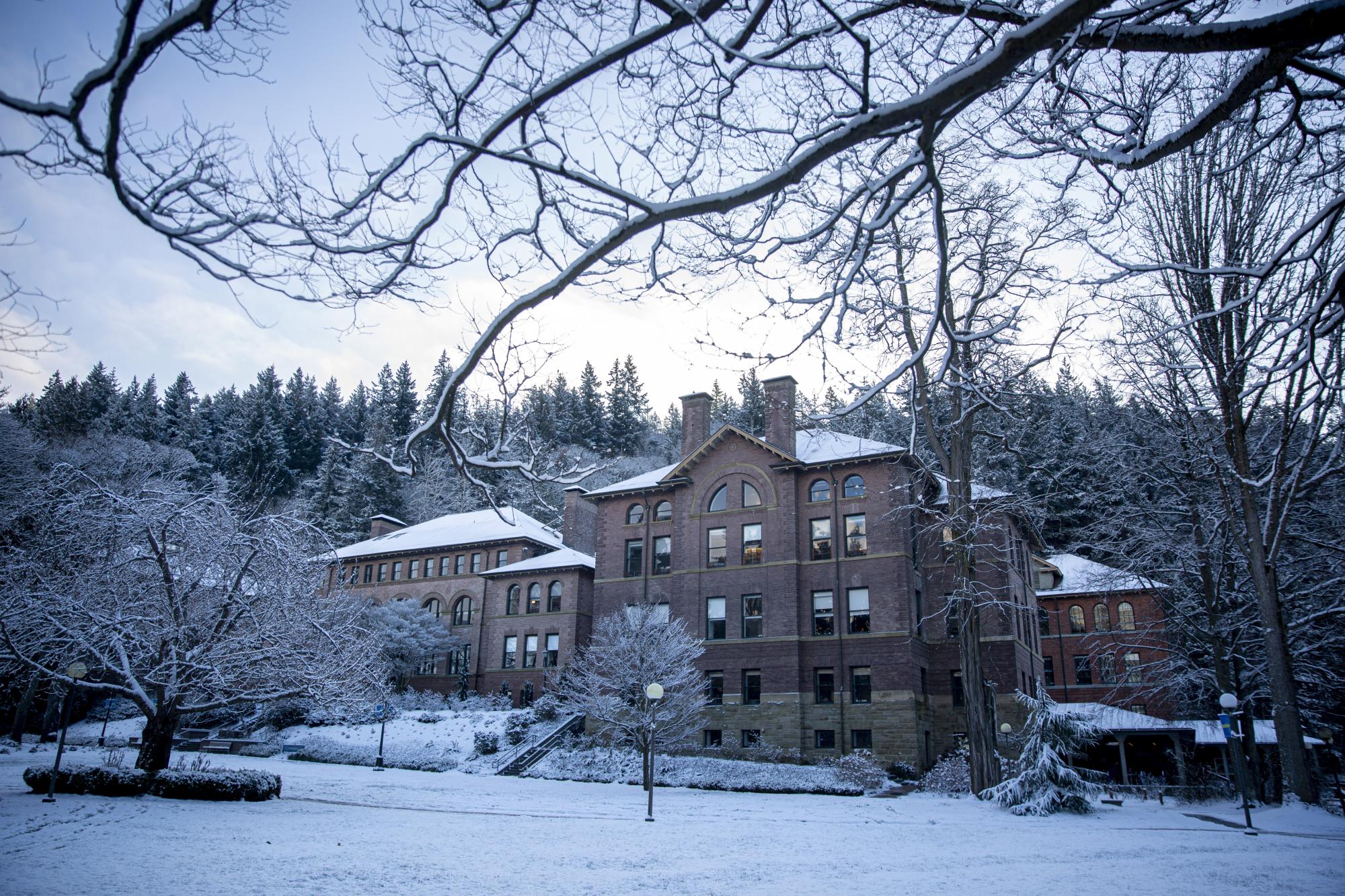Graduate Research and Creative Opportunities Grant
Deadline Reminder
Department chair must approve and submit the proposal by the following RSP deadlines:
- Fall 2023: November 6 before 5PM PST
- Winter 2024: February 20 before 5PM PST
- Spring 2024: May 13 before 5PM PST
Suggested Timeline
We suggest that application materials are sent to.... *
- Faculty Advisor: 2 weeks before RSP deadline
- Department Chair: 1 week before RSP Deadline
*Be sure to check if your department has set specific internal deadlines!
Award Notification Dates
Fall 2023: December 13
Winter 2024: March 20
Spring 2024: June 12
*Template updated 9/25/2023
Helpful tips!
The proposal template MUST be downloaded, completed, and attached to your application (eSign form) as a PDF file to be considered for funding.
For best functionality, open template in the desktop Word application. All WWU students have free access to Microsoft Office.
Questions?
Check out our Frequently Asked Questions or head to the Grant Management page for post-award queries
Overview
The Graduate Research and Creative Opportunities Grant Program provides graduate students with up to $1,500 in funding to engage in research, scholarly and creative work that has the potential to significantly impact the student’s educational goals.
BEFORE YOU BEGIN
- Please give yourself, your faculty advisor, and your department chair plenty of time for this process.
- Your proposal is not considered submitted until your department chair has reviewed, approved, and submitted it on your behalf by the RSP deadline.
FUNDING INFORMATION
Award Amount: The maximum award is $1500.
- Funds may be used to support travel, equipment, supplies, and other costs necessary for performing the proposed work.
- Expenses otherwise available through the student’s academic department, college, or lab will not be considered.
- The program is unable to support student stipends.
- The committee will consider requests to support expenses incurred prior to an award notification date if the expense is recorded during the same academic quarter as the application is received.
- Funding is available for 12 months from the date of the award letter, or until you graduate or leave the university, whichever comes first.
In addition:
- Collaborative (team) proposals submitted as independent applications must clearly indicate how an award will be split.
- Any non-consumable items or equipment (e.g. cameras, software, tablets, glassware, cables, costumes, etc.) acquired using award funds remain the property of the university.
- WWU must be the primary (direct) beneficiary of travel requests. More information is available here.
- Expenditures must adhere to the proposal budget; significant deviations from the budget must be approved in advance by the Office of Research and Sponsored Programs.
- Reimbursement must be supported by receipts/purchase orders and must be submitted to departments.
ELIGIBILITY: Who can apply?
This program is open to any registered graduate student in good standing, performing independent research/creative activity/scholarship under the guidance of a faculty mentor. Both individual and collaborative (team) proposals are accepted for consideration.
Team Projects: Team projects may request funding via two mechanisms: (1) multiple students may be listed as co-authors on a single proposal, or (2) separate proposals may be prepared by each team member for distinct aspects of a single project. Proposals submitted via mechanism (2) should be separately authored (no sections of any two proposals should be identical) and will be independently evaluated based on their own merit. Team projects should clearly define the individual contributions and role of each participant. In all cases, the award size is limited to $1500 per team.
GENERAL GUIDELINES
- Work closely with your faculty advisor, who can help guide you to frame your problem, identify relevant prior work, design methods and approaches, and refine drafts of your proposal.
- Use the narrative to describe why your proposal is worthwhile and relevant. Pose your creative project or research question in the context of background information on the subject, importance to the field, and anticipated outcomes or impacts.
- Proposals are evaluated by a multi-disciplinary committee of faculty and students. Do not assume that reviewers are familiar with the details of your field or the research, scholarly or creative work that happens within it. Avoid technical jargon and offer sufficient background information to assist the reviewer to understand the merit of your proposal.
- Ensure that sample artwork, figures, charts, or other graphics are readable and fit within the narrative page limit.
PROPOSAL FORMAT
Use the following headings, included in the required template, to address key merit criteria within the project narrative:
Project Narrative (2 Page Limit)
Introduction: Provide a summary of your objectives, the methods to be employed, and the significance of the proposed activity to the field of study (3-4 sentences).
Background: Provide context for your proposal including a literature review. Demonstrate how your project is supported by background knowledge on the subject. The literature cited indicates how well you are aware of the previous work in your field of study. If you have received a previous Graduate Research and Creative Opportunities award, include information about how the proposed work is related to it.
Proposed work: Use this section to address the following key evaluation criteria: a) Scholarly/Creative Merit. How does the proposed project benefit the existing body of knowledge about the field or contribute to your field of study?; b) Scope of work. Clearly state your individual research or creative activity objectives. Discuss how the proposed project may affect the greater community or what will be different as a result of this funding; and, c) Impact on educational goals. How does the work relate to your educational goals? In addition, if applicable, use this section to define the individual contributions of the collaborators and/or team members.
Plan of action: A timeline or project schedule for your individual proposed work is required to demonstrate feasibility. Provide a clearly defined set of tasks which will accomplish your objectives. Describe procedures, experiments, and the design of appropriate items needed for your individual project.
Dissemination: How will the results of the proposed work be disseminated? Some examples include: a Scholar's Week poster presentation, workshop, presentation at a conference, publication in conference proceedings or a journal, a performance, creation of literature, display at a gallery or other venue. The Faculty Advisor will review the work prior to this proposed activity.
Bibliography (New Page, Limited to 1 page):
Make sure you include the complete citations for the literature sources referenced.
Budget (New Page, Limited to 1 page):
Use the template to provide an itemized list of supplies and equipment requested for your proposed individual project, including the cost, supplier, and catalogue number (when available) of each item. Identify where additional funding will come from if the project budget exceeds the amount of grant funding available. In a separate paragraph, include a budget justification describing how each requested item will be used for your project, why any travel is essential, etc.
EVALUATION OF PROPOSALS
Graduate Research and Creative Opportunities Grants are highly competitive awards that support independent scholarly research, fieldwork, scientific inquiry, new technology development, artistic/creative projects and performances and other innovative activity, but not designed to support expenses otherwise available through the student’s academic department, college, or lab. A multi-disciplinary committee of the Research and Creative Activities (RCA) Council evaluates proposals and makes recommendations to the Vice Provost for Research. Proposals are evaluated based on the Advisor’s comments and the following key merit criteria.
Strong proposals will demonstrate:
- Scholarly and/or creative merit benefiting the field
- A well-defined, clearly presented scope of work
- Significant impact on the student's educational goals
- Feasibility within the proposed timeframe with the funding available
- An appropriate dissemination plan
- A well justified budget
The committee is also concerned with the equitable distribution of awards across colleges.
Template Reminder
- You must use the proposal template.
- Download, complete, and attach it to your application (eSign form) as a PDF file to be considered for funding.
APPLICANT
- Fill out the Graduate Research and Creative Opportunities application (eSign form).
- Attach a single pdf file containing all required materials, using the required proposal template.
- Submit the application (eSign form) form to your faculty advisor.
*Be sure your faculty advisor knows they must forward their portion of the application to the department chair before the deadline.
FACULTY ADVISOR
Faculty Advisors should:
- Work with advisee to develop the project and proposal.
- Review the application.
- Complete rubric and comment sections of the application (eSign form).
- Approve the application by approving it to the department chair.
DEPARTMENT CHAIR
In the application (eSign form), department chairs should:
- Review the materials.
- Submit the proposal to RSP on behalf of the student by approving the application to rsp.internalgrants@wwu.edu.
Department chair must approve and submit the proposal by the following RSP deadlines:
- Fall 2023: November 6 before 5PM PST
- Winter 2024: February 20 before 5PM PST
- Spring 2024: May 13 before 5PM PST
IMPORTANT NOTE: Applications received without approval from the faculty advisor and department chair or submitted after the deadline or without required materials will not be considered for funding.
AWARD NOTIFICATION DATES
Fall 2023: December 13
Winter 2024: March 20
Spring 2024: June 12


